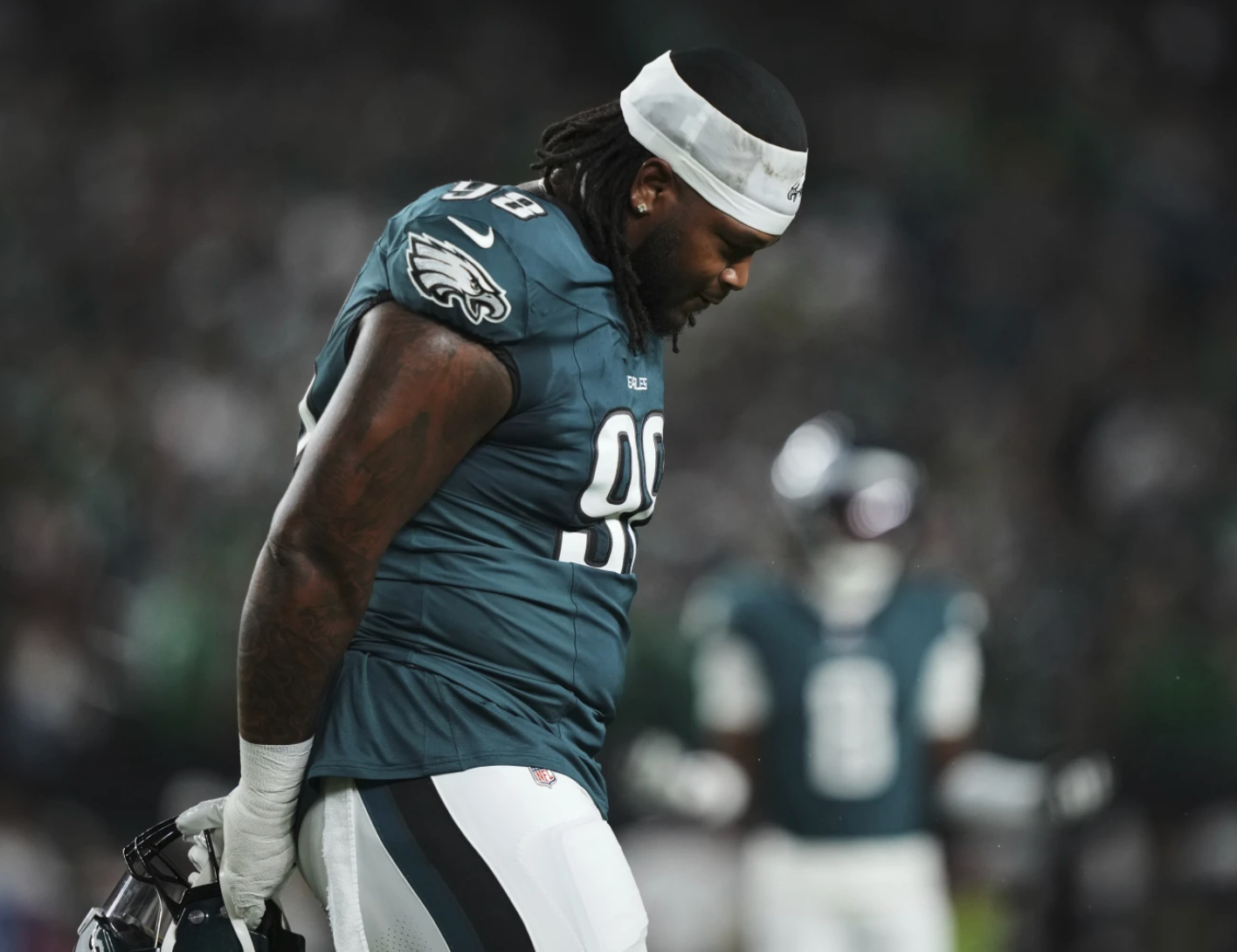BY TIM REYNOLDS
Inter Miami’s Luis Suárez further damaged his reputation. Jalen Carter of the Philadelphia Eaglescost himself the chance to play in a season-opening game. Florida’s Brendan Bett gave South Florida a 15-yard gift on its drive that decided its win over the Gators.
Their transgression: spitting.
In the span of seven days from last Sunday through this past Saturday, there were three high-profile spitting incidents in sports. They were immediately condemned, including by those close to the offending parties such as the Florida coach who called such behavior “unacceptable.” The reviled responses show there are limits to allowable aggressions, even in the most heated competitions.
“There are a lot of written and unwritten rules about how you interact with others,” said Dr. Peter Valentin, the chair of the forensic science department at the University of New Haven in Connecticut. “And in the sports world, you can have two opponents vie for supremacy and they go at each other very, very aggressively. But it’s done with a measure of respect. … The idea of spitting on your opponent communicates disrespect. And I would be shocked if that wasn’t the intent of that act, to just demonstrate disdain for your opponent.”
Suárez, who has been previously sanctioned at times in his career for biting opponents, spit on a member of the Seattle Sounders’ staff after Inter Miami’s 3-0 loss there in the Leagues Cup final. Carter spit — or spit back, depending on perspective — at Dallas quarterback Dak Prescott before the first play from scrimmage in the first NFL game of the regular season Thursday night. Bett spit at a South Florida player, and those 15 penalty yards helped the Bulls get a chip-shot field goal to win 18-16 on the final play of the game.
Florida coach Billy Napier called Bett’s action “unacceptable” on Saturday night. On Monday, Bett posted a public apology on Instagram and told the South Florida player, Cole Skinner, that “there is no excuse for my actions.” Bett will face some internal disciplinary action, but Napier did not say if he will be suspended for this week’s game at No. 3 LSU.
“He made a mistake and he compromised the team,” Napier said Monday. “He made a selfish decision. He misrepresented our fans, our alumni, the university. And when a young man comes into your office and that’s his immediate concern, how he didn’t represent this place the right way, I think that’s a good indication of his attitude towards it.”
Around the NFL this week, the reactions to spitting were clear.
“That’s just not professional,” Arizona offensive lineman Paris Johnson said.
“You can’t do that,” Green Bay defensive lineman Rashan Gary said.
“You don’t want to see anyone getting spit on,” Tennessee offensive lineman Lloyd Cushenberry III said.
Suárez got a six-game suspension from future Leagues Cup matches and will miss the next three Major League Soccer matches for his team as well, which will hurt the playoff push for Lionel Messi and his squad. Carter got kicked out of the Eagles-Cowboys game, with Philadelphia coach Nick Sirianni saying Monday that any possible team discipline levied against him would remain private, and Bett was ejected for what became the final seven plays of the Florida-South Florida game.
“It was a mistake that happened on my side,” Carter said. “Just won’t happen again.”
Replays later revealed that Prescott spit first, but only in the general direction of the Eagles’ defense and not onto an opposing player. Carter, in response, spit on Prescott.
“I guess I needed to spit,” Prescott said. “I wasn’t going to spit on my linemen. I just spit ahead. … I don’t wish for anybody to get out of the game. I’m sure he probably regrets that to some extent. I’m pretty sure he knows I didn’t try to spit on him or wasn’t even aiming to spit on him.”
Players around the league could easily see how that sort of back-and-forth was going to escalate quickly.
“You’ve got to fight me at that point, spitting on another player,” Tennessee Titans tight end Chig Okonkwo said. “If you spit at his feet, I guess it’s just like talking. But spitting on another player like that is unacceptable.”
Saliva is critical for its role in promoting digestion, assisting with dental health, carrying antibodies and more. But public health officials — in lessons that were hammered home during the pandemic that started in 2020 — also point out that saliva can carry and transmit diseases, everything from cold, flu, the Epstein-Barr virus, strep, some types of hepatitis and even herpes.
It’s also, well, icky.
In the way spitting occurred in and after those three games this past week, it was simply considered degrading. And there are few things that seem to trigger stronger reactions in sports than when someone intentionally spits on another person.
“It’s just a new level of disrespect, not only for your opponent, but for the game itself,” Valentin said. “I understand that the way that people behave around each other is very culturally significant. And you can imagine the culture in a league. The unwritten rules are important. Spitting has never been part of the culture. I am certain of that.”









